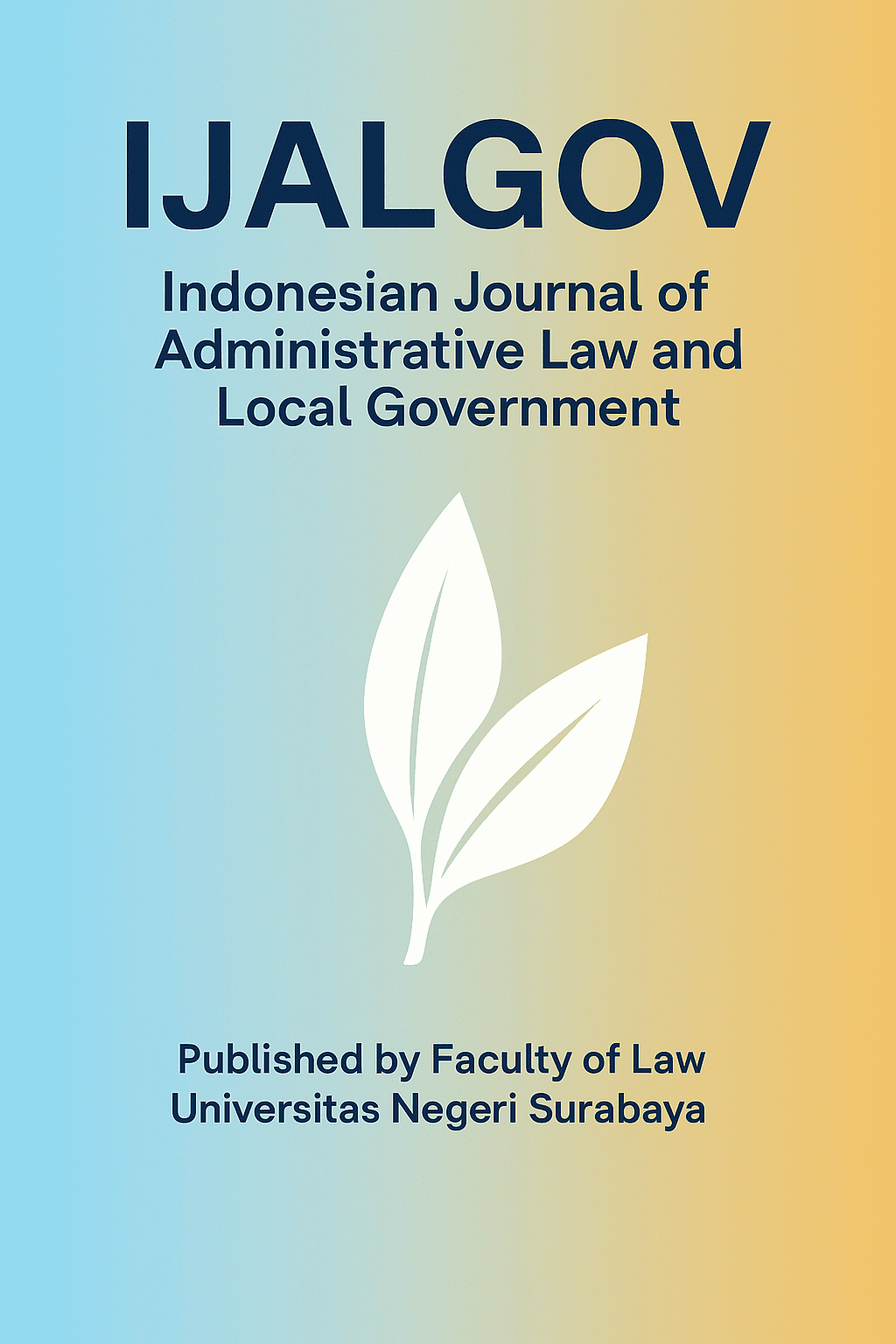The Changing of Recognition Patterns for Indigenous Legal Communities in Indonesia's Legal System
DOI:
https://doi.org/10.26740/ijalgov.v1i01.40307Keywords:
Human Rights, Indigenous People, Public PolicyAbstract
Indigenous peoples' constitutional rights recognition is closely related to the struggle for Human Rights. Although Indonesia has thousands of indigenous communities that have been recognized since the colonial era, the legal issue of identifying the identity of indigenous peoples as legitimate citizens is still ongoing. This problem arises with the absence of definite indicators in the constitution that can be used to describe the resolution of indigenous peoples clearly. This article aims to examine the consistency of the mechanism for recognizing the rights of indigenous peoples in the Draft Law on Indigenous Peoples with the principles of Good Legal Formulation. The research was conducted using doctrinal research methods. The conceptual and regulatory approaches were used to find the construction of the ideal legal form in guaranteeing the rights of indigenous peoples. The eight principles of legality are the basis for building legal arguments in ensuring that the Draft Law on Indigenous Peoples has been made following the principles of Good Legal Formulation. The results of the study show that there are still weaknesses in the procedure for recognizing indigenous peoples that have the potential to harm these communities, thereby causing social change. From these findings, it can be concluded that the government needs to review the indicators and procedures used to obtain constitutive recognition for indigenous peoples. This research will have a significant impact on the provision of constitutional rights and improving the standard of living of indigenous peoples in Indonesia.
Published
 Abstract views: 227
Abstract views: 227






